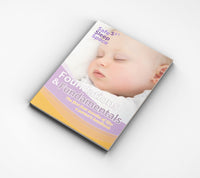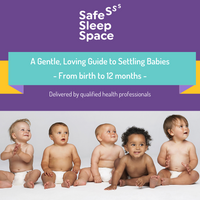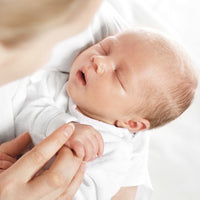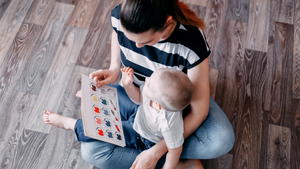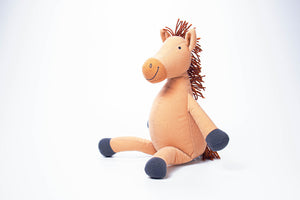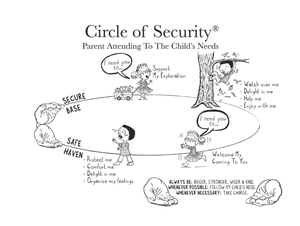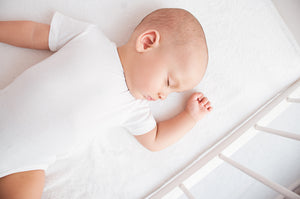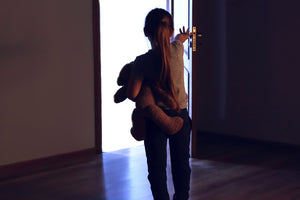How Does Adult And Infant Sleep Differ?

Most of us appreciate that adults and babies sleep differently, but don’t quite understand how dissimilar their sleeping patterns really are. Babies are not simply small adults. Their brain really is a work in progress and good sleep, supports their overall development. Some babies are what are described as ‘good’ sleepers and others need a little more support to learn that sleep really is a rather lovely state.
So if you’re like many parents who just want their baby to go to sleep more easily, sleep a little longer or perhaps not wake up so frequently, read on to learn what’s useful to understand.
Newborn sleep
Every newborn is a unique little individual and even siblings who share the same DNA will not perfectly match each other in terms of their sleeping behaviour.
Sleep serves an important purpose for all of us, though especially for babies, who conserve energy to invest into their growth, consolidate memories and release growth hormones.
- Newborns tend to have no predictable sleep pattern and it’s not until they’re aged closer to three months or older their sleep tends to form more of a regular pattern. By this time, parents are often sleep deprived themselves and are keen for any improvement in their babies sleep and settling routines.
- Newborns tend to spend much of their sleep time, around 50% in REM (rapid eye movement) sleep; this is also called active sleep and is when dreaming occurs. REM sleep plays an important role in brain and neural pathway development.
- During REM sleep, babies can often seem as if they’re awake or about to wake up – they may twitch, cry out briefly, their eyes can be seen to move although their eyelids remain shut. They may also make sucking movements with their mouth and their hands open and close. Their breathing may also speed up and it may look as if they’re about to cry.
- Non REM (NREM) sleep, also known as quiet sleep, accounts for the remaining 50% of a newborn’s sleep time. This is when babies tend to be more still, they seem to be deeply asleep and there’s no sign of the activity they show when they’re going through stages of REM sleep.
- Newborns don’t develop a circadian rhythm until they’re closer to three months of age.
Older babies – from three months onwards
Once a baby reaches the three month stage, they tend to develop more of an adult pattern to their sleep.
What was divided into two distinct sleep patterns now become four stages, though it can take until around five years of age before a child’s sleep mirrors the same pattern as an adults.
- Stage 1 - NREM 1 – is a lighter, quiet stage of sleep. This is the typical stage when babies go to sleep when they are being fed or are cuddled off to sleep.
- Stage 2 - NREM 2 – is also a lighter, quiet sleep stage. Both stages 1 and 2 are when the baby can easily be woken. If you have to move your baby, it’s best to leave this until stages 3 or 4.
- Stage 3 - NREM 3 – this is the deepest stage of sleep. The baby is not woken easily by household noise or by being moved.
- Stage 4 – REM – this is when dreaming occurs and is called active sleep.
Key Differences
Adult sleep |
Infant Sleep |
|
Between 7- 9 hours at night. |
Newborns sleep up to 18 hours in 24 hours. |
|
Predictable and consistent. |
Can be erratic with little consistent pattern. |
|
Sleep for longer, continuous periods. |
Sleep for short periods, typically from 40 minutes. |
|
Tend not to wake at night but if they do, go back to sleep easily. |
Wake frequently overnight. Many babies continue to wake at least once overnight until they are one year of age. |
|
Restrict sleep until night time (though some adults continue to have a short daytime nap). |
Retain day sleeps until around 3-4 years of age. |
|
Experience REM sleep after being asleep for around 90 minutes and just before waking. |
Experience REM sleep shortly after falling asleep. |
General baby sleep facts
- From around three months of age, babies sleep for longer periods at night and shorter periods during the day.
- Babies often sleep for longer periods in the mornings than they do in the afternoons.
- Babies aged less than three months are often more wakeful in the late afternoons.
- Babies aged from three months often have at least one longer e.g. 5-6 hour continuous sleep overnight.
- By the time children have grown into adulthood, they spend around 20% of their night sleep in REM stage sleep.
- Many young babies can fall asleep anywhere. As they get older and more aware of their surroundings, they become more sensitive about how and when they fall asleep.
Normal sleep patterns
It’s normal for babies to wake more frequently in the second half of the night than the first. After around three months of age, most babies are able to sleep for up to six hours before waking for a feed.
Your baby’s genetics, environment, age and growth all contribute to how they sleep and how long they sleep for.
Many babies wake as they transition between stages of deep and light sleep. Typically, this is around 30-40 minutes after they’ve fallen asleep.
Many babies need help to learn how to self sooth and settle on their own. Patting, shshing, rocking and reassuring all help babies to feel they are being helped to go back to sleep, rather than being picked up, fed straightaway and stimulated so they become fully awake.
Key messages about infant sleep
- All babies develop their own routines and patterns of sleep. Some are easier to settle than others and are more predictable in how long they sleep for. Comparisons with other babies of the same age are rarely useful.
- Most young babies love to be cuddled and fed to sleep. This is not a problem until it becomes challenging for parents who feel they can’t place their baby into their cot to go to sleep on their own. At some point in time, most parents are keen to learn skills in supporting their baby to settle independently.
- Babies tend to settle more easily and sleep for longer periods if they go to sleep in the same consistent way. Being placed into their cot when they are calm, showing tired signs though still awake, helps them to learn how to go off to sleep on their own once all their needs have been met.
- Until they’re at least seven months of age, most babies, especially if they’re breastfed, will need at least one feed overnight.
- All babies need to sleep according to safe sleeping guidelines, in a safe cot with all potential dangers removed.
Sources
https://www.firstfiveyears.org.au/child-development/baby-wont-sleep-heres-why-babies-wake
https://www.sleepfoundation.org/baby-sleep/baby-sleep-cycle
Written for Safe Sleep Space by Jane Barry, Midwife and Child Health Nurse.
